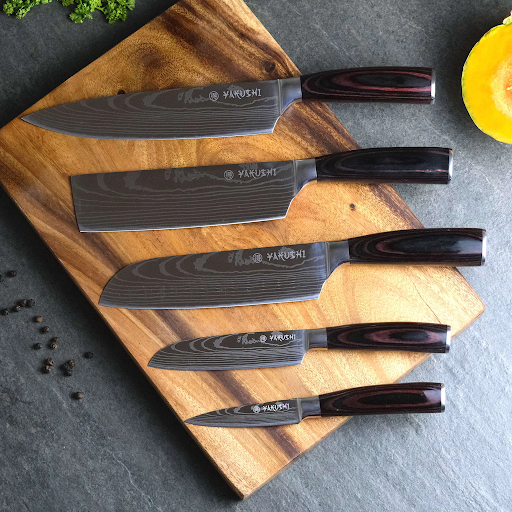In the world of gastronomy, the pursuit of perfection is an unending journey. For every culinary enthusiast, a kitchen is not just a place to prepare meals; it’s a sacred space where creativity and precision converge. And what better way to elevate your culinary experience than by investing in the best Japanese knife set? Crafted with centuries of tradition, Japanese knives are renowned for their precision, sharpness, and artistry.
The Essence of Good Kitchen Knives
Before delving into the realm of Japanese knives, let’s first explore what makes a good kitchen knife. Good kitchen knives should be an extension of your hand, effortlessly slicing through ingredients with precision and grace. The primary attributes to consider when searching for the best kitchen knives are:
Sharpness: A sharp blade is essential for clean cuts and minimal effort. Japanese knives are celebrated for their razor-sharp edges, allowing for precise cuts that preserve the integrity of your ingredients.
Durability: A good kitchen knife should withstand the test of time. Japanese knives are often forged from high-quality steel, ensuring longevity and minimal maintenance.
Balance: The knife should be well-balanced, meaning the weight of the blade should be evenly distributed from tip to handle. This balance ensures comfortable handling and precise control.
Comfort: The knife’s handle should provide a comfortable grip, minimizing the risk of hand fatigue during prolonged use.
Versatility: A versatile knife set should cover various tasks, from slicing and dicing to chopping and mincing, allowing you to tackle any culinary challenge that comes your way.
Why Japanese Knives Stand Out
Precision Craftsmanship: Japanese knife artisans uphold a centuries-old tradition of meticulous craftsmanship. These artisans master the art of blade-making, focusing on precision and perfection.
Exceptional Steel: Japanese knives are typically made from high-carbon stainless steel, renowned for its sharpness, durability, and resistance to rust. The quality of steel used in Japanese knives contributes significantly to their unmatched performance.
Distinct Blade Shapes: Japanese knives come in various shapes, each designed for specific tasks. There’s a Japanese knife for every purpose, from the versatile Gyuto (chef’s knife) to the nimble Nakiri (vegetable knife) and the precise Sashimi knife.
Unmatched Sharpness: The honing and sharpening techniques employed by Japanese knife makers result in incredibly sharp blades that can effortlessly slice through even the thinnest ingredients.
Minimal Maintenance: Japanese knives are relatively easy to maintain despite their sharpness. Regular honing and proper storage will keep these knives pristine for years.
Choosing the Best Japanese Knife Set
Consider Your Needs: Assess your culinary habits and preferences. Do you need a comprehensive set that covers all your cooking needs, or are you looking for a specific knife to enhance your collection?
Budget: Japanese knives come in a wide price range. While it’s tempting to splurge on the most expensive set, excellent options are available at various prices. Set a budget and stick to it.
Blade Types: Decide on the types of blades you need. A basic set often includes a chef’s, utility, and paring knife. However, you can expand your collection with specialty knives like a Santoku or a Sashimi knife.
Handle Comfort: Japanese knives typically feature two types of handles – Western-style and Japanese-style. Western-style handles resemble the handles of traditional European knives, while Japanese-style handles are generally oval and offer a different grip. Choose the one that feels most comfortable in your hand.
Maintenance: Consider the level of care you’re willing to commit to. Some Japanese knives require more frequent honing and sharpening, while others retain their edge longer with minimal maintenance.
Brand Reputation: Research reputable Japanese knife brands known for their craftsmanship and quality. Brands like Shun, Miyabi, and Yoshihiro are trusted names in the industry.
Conclusion
In the world of culinary arts, precision is paramount, and the right tools can make all the difference. A good kitchen knife is not just a utensil; it’s an extension of your culinary creativity and reflects your dedication to the craft. When searching for the best Japanese knife set, you’re not merely purchasing cutlery but investing in a centuries-old tradition of craftsmanship, precision, and excellence.
